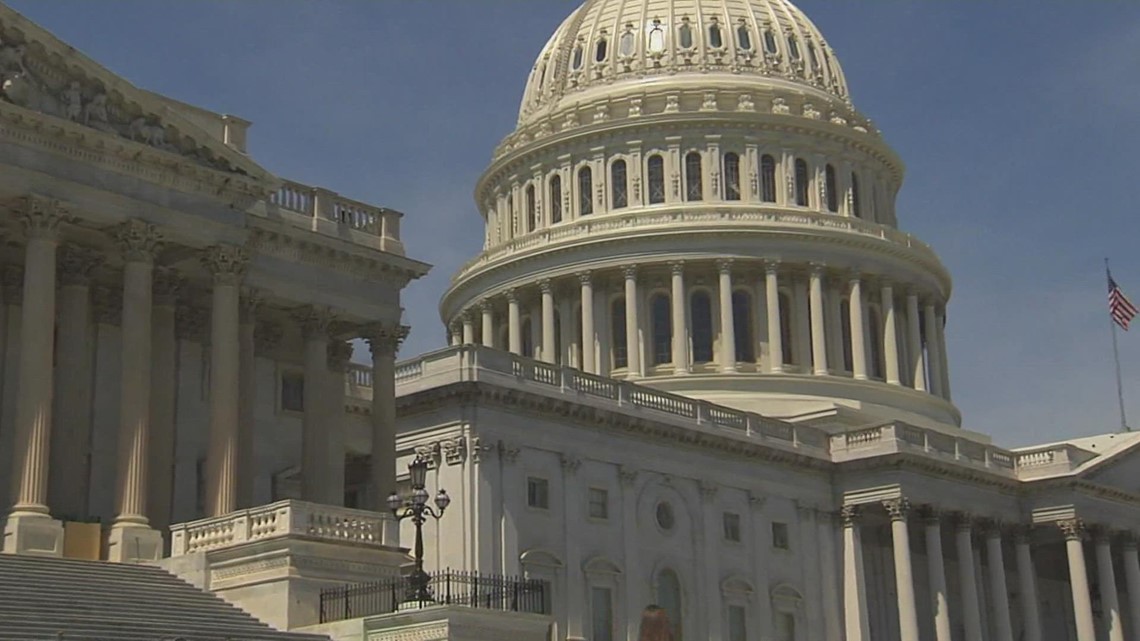More Ohioans could become eligible for medical marijuana under Senate bill

COLUMBUS, Ohio (WCMH) — A Republican lawmaker’s efforts to overhaul Ohio’s medical marijuana program and increase the number of Ohioans eligible for prescription cannabis were put to the test on Wednesday.
The House Government Oversight Committee held its fourth hearing on Senate Bill 261introduced by Sen. Steve Huffman (R-Tipp City), to streamline the process for companies vying for a medical marijuana license and allow doctors to prescribe the drug when they “reasonably” believe it will help a patient.
“It makes it more patient-centric, and as a doctor I’ve always been for it to be patient-centric, that they can get it in the right conditions and in the right way at a right price,” Huffman said.
Under current law, Ohio’s medical marijuana program falls under the jurisdiction of the Ohio Board of Pharmacy. Huffman’s bill would transfer most of the authority to the Commerce Department – a move he says will spur the provision of business licenses at a faster rate to meet market demand.
Huffman said companies seeking a license often go back and forth between the Ohio Board of Pharmacy and the Department of Commerce, so SB 261 would eliminate bureaucratic red tape around the process.
“Everything goes to the Commerce Department to provide a uniform place for companies to get their answers and grow their business,” he said.
The Board of Pharmacy would not lose all power over the program, Huffman said. The Ohio Automated Rx Reporting System (OARRS), an online prescription database, will still be under the authority of the board of pharmacy.
According to Ohio Pharmacy Board. Physicians have referred nearly 465,000 patients for eligibility since the medical marijuana program’s inception in 2016, and product sales have generated $799.3 million.
According to the OMMCP website, Ohioans eligible for medical marijuana treatment must first receive a doctor’s referral and register for a marijuana card with the Marijuana Control Program. Ohio medical marijuana.
By streamlining the process by which dispensaries can obtain a license, Andy Rayburn, CEO of Cleveland-based marijuana grower and processor Buckeye Relief, said SB 261 would lower the price of cannabis for consumers.
“Growers and processors do not determine the price of drugs for patients,” Rayburn said in testimony before the Ohio Senate in November 2021. “Dispensaries determine the price, and retail competition is the the best and fastest way to reduce the price of drugs.”
SB 261 would also open the door for more Ohios to be eligible for prescription medical marijuana, adding those diagnosed with arthritis, migraines, autism spectrum disorders, chronic muscle spasms, palliative care or terminal illness and opioid use disorder to the eligible list. patients, according to the text of the bill.
Ohio business owner Chris Lane testified against the bill during his hearing on Wednesday, strongly criticizing that the commoditization of medical marijuana across the state and allowing doctors to use their ” sole discretion” to prescribe the drug is not patient-centred.
“I fully support the private relationship that exists between patient and doctor,” Lane said. “However, no other drug can be so arbitrarily prescribed outside of the intended treatment classification.”
While Lane acknowledged the myriad of anecdotes about the drug’s benefits, he urged Ohio lawmakers to also recognize instances in which the Schedule 1 drug has led to “tragedy, trauma and even eventually entering into another debilitating condition – addiction and dependence”.
The Ohio Psychiatric Physicians Association and the Ohio Society of Addiction Medicine submitted written evidence in opposition to SB 261. They denounced the inclusion of people with autism spectrum disorders and opioid abuse disorders as patients eligible for medical marijuana, citing lack of FDA approval and research. surrounding its effects on these groups.
“Instead of authorizing non-FDA-approved treatments for opioid use disorder, we recommend that lawmakers pursue policies to expand the use of proven drugs like buprenorphine, methadone, and naltrexone,” the Ohio Society of Addiction Medicine said in its written testimony.
But Tim Johnson, president and owner of Cannabis Safety First, touted cannabis as the “world’s most studied herb” with a host of medicinal benefits, adding that the original intent of Ohio’s medical marijuana program was to provide “a valuable alternative medicinal route”. , other than big pharma RX drugs.
“When in our history has cannabis ever been declared a public health crisis or a public criminal crisis with supporting evidence?” says Johnson.
Although Johnson said SB 261 did not include criminal justice reform policies and patient protections, he praised the bill’s efforts to improve the safety and security of the medical marijuana program – like requiring growers to package the drug in childproof containers with labels showing the drug’s tetrahydrocannabinol (THC) and cannabidiol content.
The Ohio Senate passed SB 261 in a 26-5 vote in December, and the bill is currently awaiting further deliberation in the House Government Oversight Committee.






